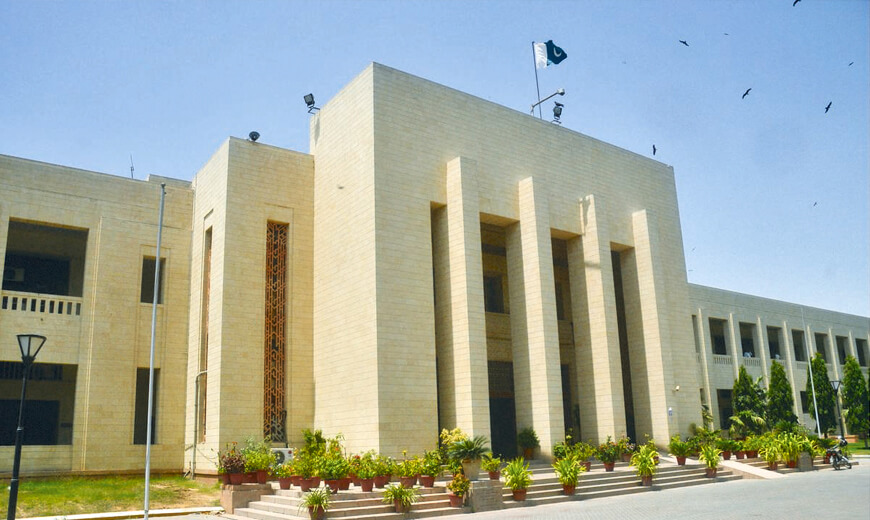PRISM welcomes Sindh safety law
The Pakistan Research Institute for Sustainable Media (PRISM) welcomes the signing of “the Sindh Protection of Journalists and Other Media Practitioners Bill-2021” into law by the Governor of Sindh Imran Ismail on July 28, 2021. This law can be seen as a step in the right direction to where safety and security of the journalists and media practitioners is concerned.
The essence of this landmark Act, passed unanimously by the Sindh Assembly on May 28, of this year, lies in this key article: “No person or institution, whether private or public, shall engage in any act that violates or threatens the right to life and security of any journalist or media practitioner.”
The Act comes at a time when news organizations houses and independent journalists are reeling under tremendous pressure from both state and non-state actors.
PRISM hopes that this law will act as a catalyst for implementing the United Nations Plan of Action on the Safety of Journalists and the Issue of Impunity, to which it signed up in 2014, and the UN Sustainable Development Goals, to which it agreed the following year.
The Act acknowledges the necessity of free speech and independent journalism as among the core foundations of a democratic society, and asserts that it is the responsibility of a democratic government to ensure that the lives, liberties and safety of media practitioners are protected from private and public authorities alike.
For this reason, the Act stipulates that concerned authorities should enact laws and other institutional frameworks for the protection and promotion of the rights of journalists and other media practitioners in the country. The Act also reaffirms the right to free speech for every citizen, as enshrined in the Constitution of Pakistan 1973.
The Act expands the scope of the definition of a “journalist” by including online media workers employed at news websites and other digital media news portals, along with the radio, print, and broadcast journalists.
In addition to journalists, the Act also introduces the vocation of “media practitioners” to include cameramen, technical staff, drivers, editors, photographers, distributors, and any other individual engaged in the collection, processing, and dissemination of information via means of mass communication.
How will journalists be protected?
The Act offers a host of protections to journalists and media practitioners from victimization by arbitrary use and misuse of counter-terrorism and other national security laws.
One of the most significant protective mechanism stipulated under the ambit of this law is that no government or non-government agency can coerce journalists into revealing their sources of information, thus awarding journalists the space to dig out news about sensitive issues without endangering their sources.
Additionally, under the law, journalists will have complete freedom to operate and report directly from conflict-hit areas without any threat of violence or fear of persecution from state authorities.
Keeping in view the near-absolute impunity with which public and private authorities can violate the fundamental rights of journalists, the new law makes special provisions to ensure that any act of violence and/or harassment faced by journalists are prosecuted using the full force of the law.
The Act also makes it clear that any threat of violence against a media practitioner will be treated as an act of actual violence and will be prosecuted as such, transforming the protections awarded to journalists under this law into proactive measures rather than reactive ones.
The commission for the protection of journalists and other media practitioners
The new law postulates the formation of an empowered and autonomous commission to overlook the implementation of the protections provided to journalists and media practitioners. The commission will operate independently from any other government department or institution and will have authority equal to that of a civil court.
Journalists facing threats or violence will have the option of filing a formal complaint with the commission and the commission will be duty-bound to resolve the issue raised in the complaint within 30 days of receipt of the complaint. Moreover, even if a complaint of an incident is not filed, the commission will have the authority to take up the issue on suo motu basis.
The commission is empowered to summon any document or individual during the investigation of a complaint or incident. Not only is the commission bound to receive and investigate complaints filed by journalists, it is also bound by the law to ensure that a decision regarding the incident is obtained from the court of law within 90 days of filing.
In addition to acting as the apex body guarding the rights of journalists accorded to them by this Act, the commission will also behave as an advisory body which will issue yearly reports regarding the steps the government must take to ensure that Pakistan abides by UN-mandated standards for the protection of journalists.
Input of key stakeholders
The key aspect of this law is that instead of declaring the ruling party or the government as the guarantor of the safety of journalists, it stipulates positive engagement with journalists, civil society bodies and other stakeholders to ensure that any decision taken by the commission enjoys the support of the society and the journalist community at large.
The core committee of the commission will include representatives from the Human Rights Commission of Pakistan, Pakistan Federal Union of Journalists, Council of Pakistani Newspaper Editors, Pakistan Broadcasters Association, All Pakistan Newspaper Council and the Sindh Bar Council.








